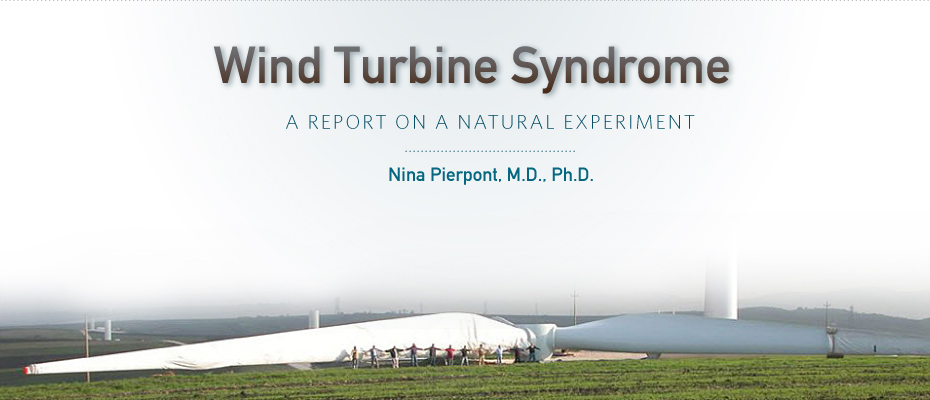Editorial: Don’t call them “wind farms”!
Aug 30, 2010
—Eric Bibler, WTS.com guest editor
Passage of the Wind Energy Siting Reform Act (WESRA) still remains a real possibility in Massachusetts, but awareness of the adverse consequences—and fundamental futility—of wind energy is growing. As more people learn the naked facts about industrial wind energy—either first hand (the hard way), as in Falmouth (MA), from news reports or from their own research—they are discovering that, in addition to being wildly expensive, it simply doesn’t accomplish anything. Opposition is growing—but we need to keep working actively resist such projects in order to prevent the wholesale industrialization of Cape Cod—where blueprints have been drawn for many additional projects—and throughout many pristine areas of Massachusetts.
The wind industry has gotten a free ride for over a decade, pushing the idea that these massive industrial power plants are effective, environmentally beneficial and benign—without having to prove their model. None of these claims are true. Their soft sell public relations efforts belie the hardball tactics they employ to ram their projects through to the universal detriment of habitat, wildlife, residents and taxpayers everywhere. Make no mistake: proponents are wielding an iron fist inside that velvet glove. Just ask anyone who has ever signed a lease waiving all of his rights to protest the consequences—or any of the thousands of people who share the misfortune of living in close proximity to such monsters.
Or you can ask the people who wrote WESRA bill what they had in mind by “streamlining” the regulations that apply to the siting of industrial wind turbines—and why the provisions of the bill needed to be so completely dismissive of all of the traditional checks and balances that exist for the express purpose of providing some measure of protection for the rights of individuals and local towns against such predatory onslaughts from any industry.
I hope that you will all join me in striking the term “wind farm” from your vocabulary and replacing it with a more suitable characterizations, such as “industrial wind plant” or “giant industrial wind factory, dominating [fill in the blank] thousand acres of land, towering over the horizon, emitting a constant, unremitting drone of foreign, mechanical noise.” As Jon Boone notes, we don’t call the conventional power versions “coal farms,” “coal mills” or “nuclear power farms.”
Do General Motors and Toyota operate “car farms”? Are the unfortunate inhabitants on Death Row in Texas awaiting their turn to sit in the “High Energy La-Z-Boy”?
Wind turbines are machines, dammit, not sculptures. They are not silent and they are not unobtrusive. They are not “virtuous” and they are not smart and they are not “shining beacons of our energy independence.”
Industrial wind turbines are monuments to our intellectual laziness, to our uncritical acceptance of an absurd idea, and to our unquestioning faith in political leaders who have led us astray by sanctioning, and promoting, a radical, ad hoc industrial plan—a program which is fueled by the manic energy of our incoherent, collective, misguided good intentions and which has been brought to life, and which is solely perpetuated, by monstrously bloated government subsidies.
Let’s call a spade a spade: “wind farms” are, in fact, giant, industrial facilities the likes of which would never pass muster with voters if they were massive arrays of cell towers, water towers or billboards—which are actually silent and inert, and a mere fraction of the size of wind turbines.
To nearby residents, the installation of a “wind farm” in their town—visually disfiguring the landscape, including pristine ridgelines and ocean vistas, spinning incessantly, emitting disturbing and unrelenting noise—seems more like an involuntary colonization by alien forces than a bucolic farming operation. Suddenly, the special effects—not to mention the plots—in all of those summer sci-fi movies don’t seem so fantastic.
So, please, don’t call them “wind farms.” Ever. Never again.
Agreed?
Thanks.
Eric Bibler is a writer living in Connecticut. (Yes, the glasses are real.)


Comment by Barbara Durkin on 08/30/2010 at 10:06 pm
This is such a nice respite as I’m just returning from the La, La, Land of the Boston Globe, and comments section. Pervasive wishful thinkers are cultivated by the media pedaling the wind “dope” that their users believe they need.
Thank you, Eric, Nina and Calvin. I never have used the term “wind ,,,,” as it is the tool of propagandists who mislead us as the facts do not support the installation of wind utility plants.
Keep up the great work!
Thank You,
Barbara Durkin